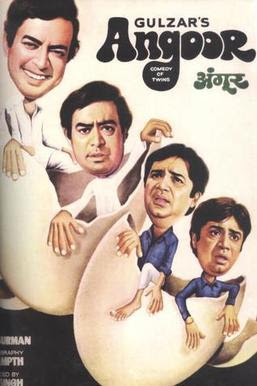Vijay Anand was a complete Filmmaker. He was a director, producer, editor, screenplay writer, story writer, dialogue writer, actor, and also knew choreography. In an interview, he told that he even wrote Mukhda of his songs. He was nineteen when he wrote the story of Taxi Driver(1954) along with his sister in law (Chetan Anand's wife). He was in college when he had a full screenplay of Nau Do Gyarah was ready.
His cinematic vision was indeed unique and made him stand apart from other filmmakers. It was his vision to make a movie on a Road Trip. Probably the first Hindi film shot on a road trip from Delhi to Mumbai. He was the first filmmaker who shot a live Film Premiere as a part of his film in Kala Bazar.
Music in his films remained a key feature, he was superb in picturizing of songs. He knew songs are the glue that binds audiences to Hindi films. Close your eyes and you can see Shammi Kapoor with a scarf around his neck, singing “Deewana Mujhsa Nahin” on a colourful hilltop, or instantly recall the smiling faces of Dev Anand and Nutan as they sing “Dil Ka Bhanwar Kare Pukaar” on the inner stairway of the Qutab Minar.
“Hum hain raahi pyaar ke hum se kuchh na boliye.” from Nau Do Gyarha was the first song he picturised. He didn't take any choreographer in that film. At that time he used to think a choreographer ruins songs. They interfere with the characterisation. He felt they impose their own personalities through their dance steps and don’t allow the artists to express themselves in the way they should.
In the Kala Bazar song “Khoya Khoya Chand”, Dev sings as he runs down the hill. He is madly in love and believes his dream is coming true. So let him move his hands— white hands against dark clothes—[as] he makes his way down the hill. It suited the scene, so once in a while, you let him go.
In the same movie, there was a scene in a train compartment. Dev Anand is sitting on the lower berth and Waheeda Rehman is lying on the upper berth. The girl’s parents are also in the compartment. Dev saab sings the song: “Apni to har aah ek toofaan hai/ Kya karen woh jaan kar anjaan hai/ Uparwala jaan kar anjaan hai.” Waheeda Rehman is listening to him but she cannot move much because she’s lying on the upper berth. There is a double meaning behind the whole situation, which is beyond choreography.
In Teesri Manzil P L Raj was the choreographer. He used to sit with the choreographer when they were composing the songs. That time all their assistants, including Saroj Khan, who was Sohanlal’s assistant. She would always ask him: “Goldie Saab, what do you want?”
As a director, he was very particular about its music. When he was working on Jewel Thief, he discussed with the composer. he told SD Burman: “Dada, this song is for Vyjayanthimala. I am going to use her talents as a dancer.” The dance sequences of Vyajayantimala were shot in a single shot.Honthon Mein Aisi Baat” (brilliantly choreographed by Master Sohanlal), as the camera follows Vyjayanthimala, he uses the circular tracks, dynamic angles and cuts to build up the tension to a crescendo. Here is an example of how Western technique could merge with Indian art. Even as you enjoy the aesthetics of dance.
The picturization of the song 'Pal bhar ke liye koi hame pyar kar le' from the 1970 blockbuster'Johny Mera Naam', where Dev serenades the dream girl through windows of all shapes and sizes, remains a masterpiece even today.
Songs picturized on Vijay Anand
















